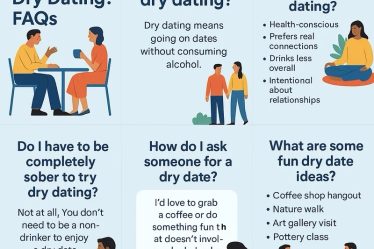
1. Cultivate Self-Awareness
Understanding oneself is foundational to being a good partner. Self-awareness involves recognizing personal emotions, triggers, and behaviors, which can influence relationship dynamics. Sharnade George, a psychotherapist and CEO of Cultureminds Therapy, emphasizes that “learning how to be a better partner requires you to look inward.” Techniques such as mindfulness and self-reflection can enhance this awareness.
2. Prioritize Effective Communication
Open and honest communication is vital in any relationship. Expressing needs, desires, and concerns transparently fosters trust and understanding. It’s essential to articulate your needs directly to avoid misunderstandings, as partners are not mind-readers.
3. Practice Active Listening
Beyond speaking, listening attentively to your partner is crucial. Active listening involves fully engaging with your partner’s words, understanding their perspective, and responding thoughtfully. This practice strengthens emotional bonds and demonstrates respect.
4. Build and Maintain Trust
Trust is the cornerstone of a healthy relationship. Being reliable, keeping promises, and demonstrating integrity contribute to building trust. As highlighted in relationship advice compiled from over 1,500 happily married couples, maintaining individual identities and allowing your partner to be who they are is essential.
5. Show Appreciation and Gratitude
Regularly expressing appreciation for your partner fosters positivity and reinforces your bond. Acknowledging their efforts and expressing gratitude can significantly enhance relationship satisfaction.
6. Practice Patience and Empathy
Understanding and empathizing with your partner’s feelings and perspectives are vital. Practicing patience, especially during disagreements, allows for healthier conflict resolution. The Gottman Institute suggests that patience involves “counting to ten before reacting” and “establishing reasonable expectations.”
7. Embrace Individual Growth
Supporting each other’s personal growth and maintaining individual interests contribute to a balanced and fulfilling partnership. Encouraging autonomy while nurturing your connection can lead to a more resilient relationship.
8. Address Conflicts Constructively
Conflicts are inevitable in any relationship. Approaching disagreements with a problem-solving mindset, rather than a confrontational one, leads to healthier outcomes. Understanding your conflict style and working towards constructive resolution is crucial.
9. Foster Emotional and Physical Intimacy
Maintaining both emotional and physical intimacy is essential for a thriving relationship. Engaging in activities that strengthen your bond and prioritizing quality time together can enhance your connection.
10. Commit to Continuous Improvement
Relationships require ongoing effort and commitment. Regularly assessing your partnership and being willing to adapt and grow together can lead to sustained satisfaction and happiness.
Incorporating these principles, can provide readers with a comprehensive guide on becoming a better partner. Emphasizing self-awareness, effective communication, trust, appreciation, empathy, individual growth, constructive conflict resolution, intimacy, and continuous improvement offers a holistic approach to nurturing healthy and fulfilling relationships



